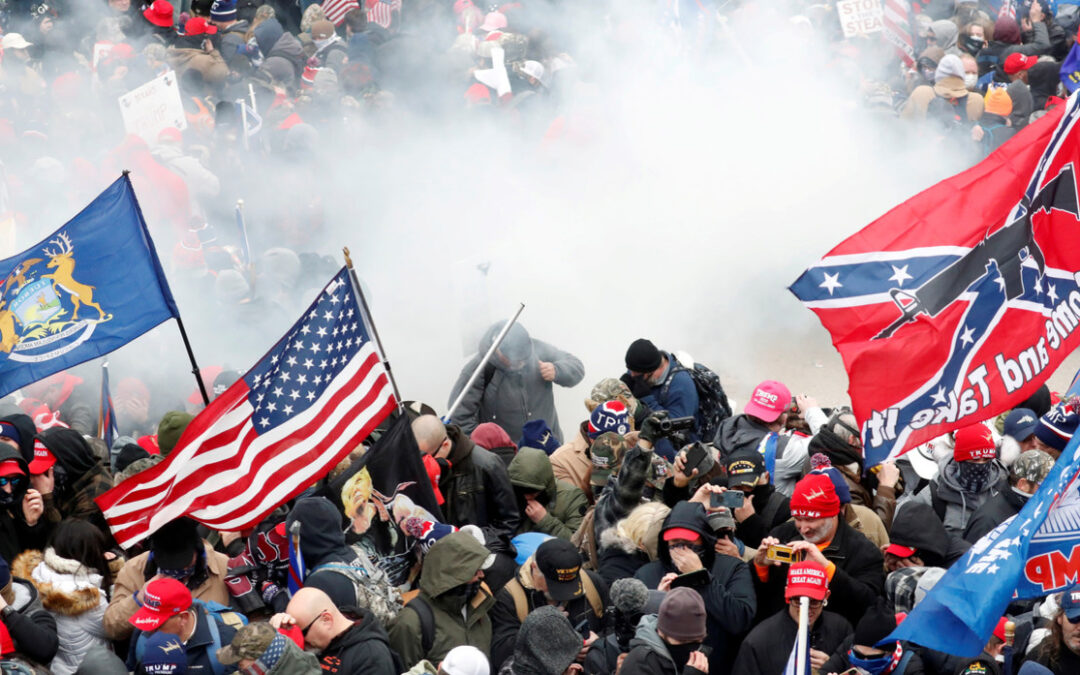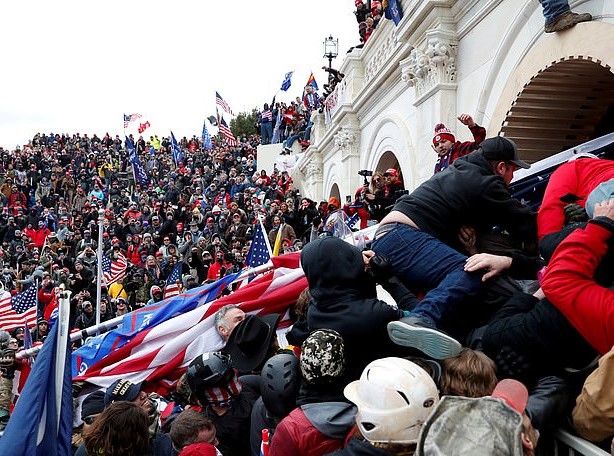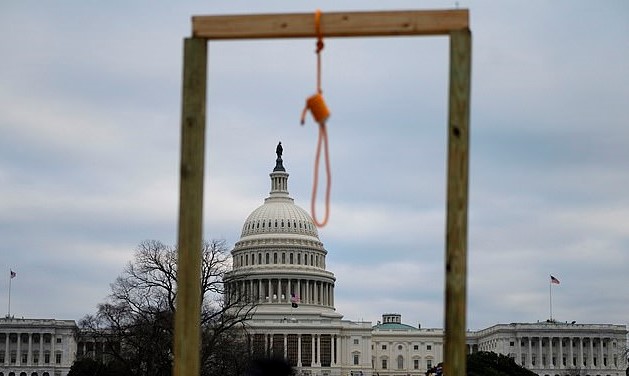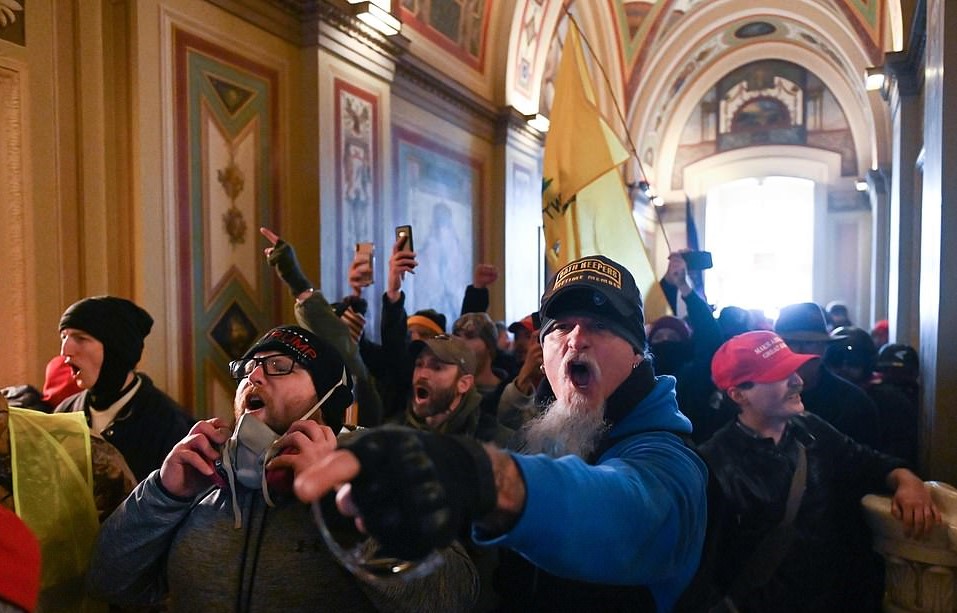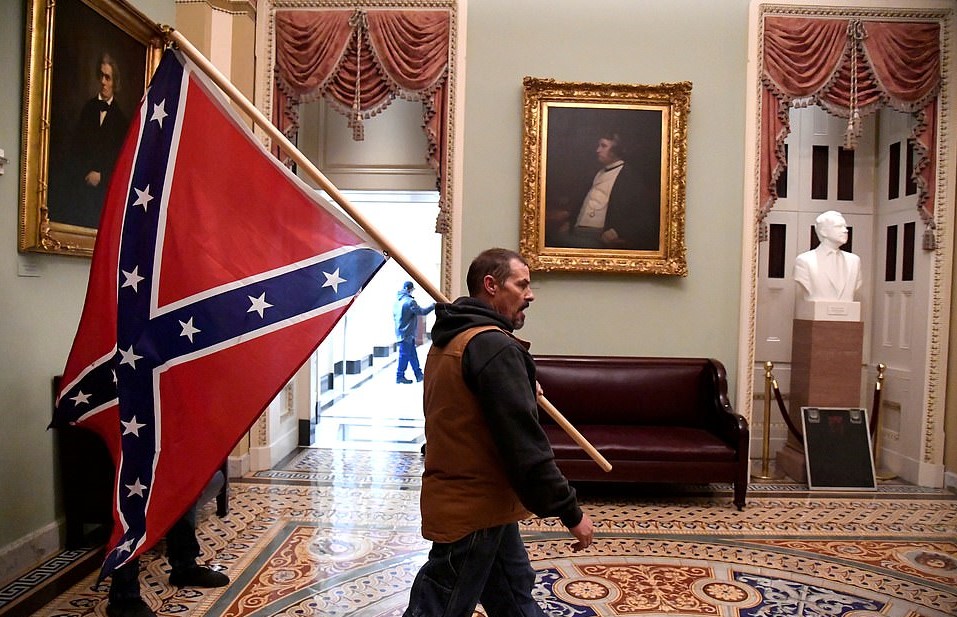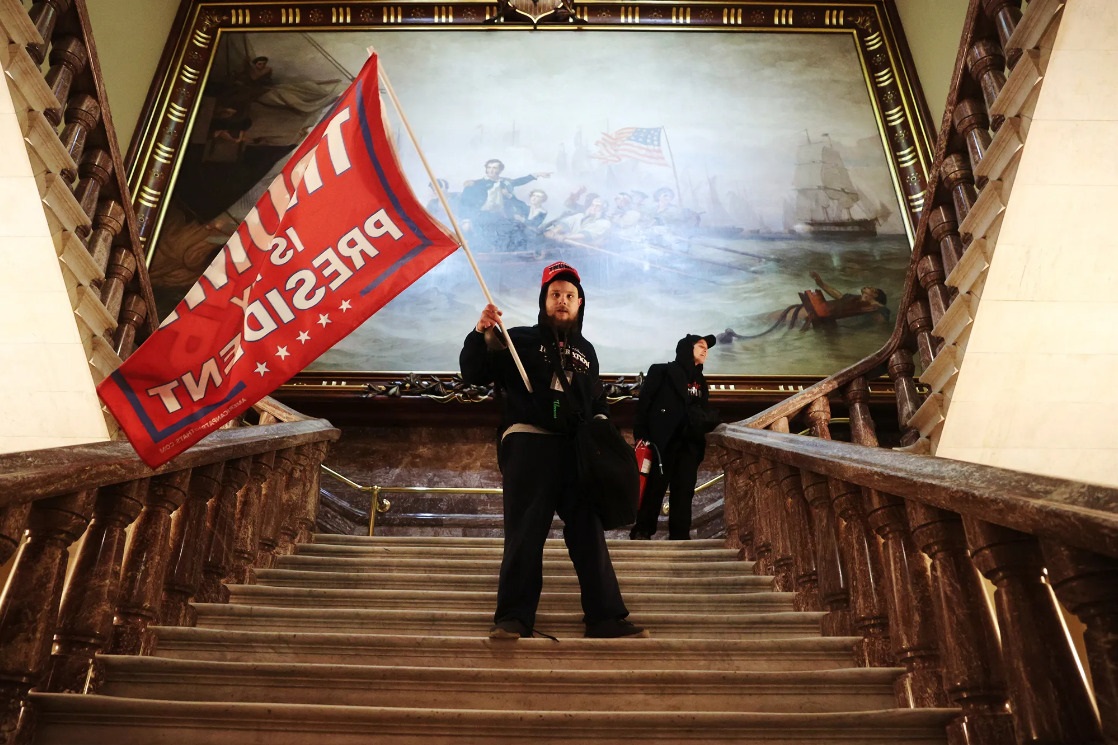The bipartisan push to launch an independent and nonpartisan investigation of the Jan. 6 riot at the U.S. Capitol suffered a fatal blow today, after nearly all Senate Republicans banded together in opposition.
The 54-to-35 outcome, six votes shy of the 60 needed to circumvent a procedural filibuster, followed hours of overnight chaos as lawmakers haggled over unrelated legislation.
The vote stood as a blunt rejection by Republicans of an emotional last-minute appeal from the family of a Capitol Police officer who died after responding to the insurrection, as well as an 11th-hour bid by Sen. Susan Collins (R-Maine) to save the measure by introducing changes intended to address her party’s principal objections.
In its wake, many senators who had supported the commission were openly angry, as even the Democrats’ most moderate senator blamed Senate Minority Leader Mitch McConnell (R-Ky.) for killing a bill in order to score political points, instead of doing what was right.
Sen. Joe Manchin III (D-W.Va.) told reporters that there were “an awful lot of other Republicans that would have supported” the commission “if it hadn’t been for his intervention,” guessing that but for McConnell’s whipping, “13 or 14” GOP senators might have voted for the bill.
In the last two weeks, only a handful of Republican senators have expressed positive sentiments about a commission.
On Friday, six of them — Sens. Bill Cassidy (La.), Lisa Murkowski (Alaska), Rob Portman (Ohio), Mitt Romney (Utah), Ben Sasse (Neb.) and Collins — joined all voting Democrats to back the commission.
All except Portman voted earlier this year to convict Trump on impeachment charges for inciting an insurrection.
The commission legislation was a product of cross-party negotiations among leaders of the House Homeland Security Committee, and it had galvanized significant support among Republicans in the lower chamber.
Last week, 35 GOP House members joined all voting House Democrats to back the creation of a Jan. 6 commission, to be modeled after a similar independent panel formed in the aftermath of 9/11, and charged with producing an objective account of what fueled the day’s violence.
But in the Senate, Republican sentiment soured after McConnell dismissed the commission as needlessly duplicative of ongoing congressional probes and as a Trojan horse that would help Democrats in the next year’s midterm elections.
“I do not believe the additional, extraneous ‘commission’ that Democratic leaders want would uncover crucial new facts or promote healing,” McConnell said Thursday, arguing that the Justice Department and Senate committees were already handling that substantive work. “. . . I’ll continue to urge my colleagues to oppose this extraneous layer when the time comes for the Senate to vote.”
Former president Donald Trump, whose most zealous supporters carried out the attack, has cast a long shadow over the GOP as lawmakers have wrestled with the proposal to establish a 10-person panel of nongovernment experts charged with finding answers — and accountability.
The proposal called for five members, including the chair, to be appointed by Democrats and another five, including the vice chair, to be appointed by Republicans.
The commission would have had the power to issue subpoenas on a bipartisan basis, which some Democrats warned — and many Republicans worried — could have been used to force the former president, and his allies in Congress, to testify under oath.
Over the past week, GOP senators voiced concern that even if the commissioners’ ranks were bipartisan, the panel’s staffing might not be.
They also argued that if the commission did not produce a final report before the end of the year, Republican lawmakers would have to spend much of the 2022 campaign season responding to its revelations about Trump’s past ills and trying to sidestep his outbursts, when their aim is to make the next election cycle a referendum on President Biden and the Democrats who control Congress.
Collins tried to address both points with an amendment that would have required the commission’s chair and vice chair to make hires together, and shortened the time it would have to wind down its work after a Dec. 31 deadline to issue a final report.
Trump entered the fray last week, warning that the commission was a “Democrat trap” and excoriating the “35 wayward Republicans” who supported the proposal in the House.
“Sometimes there are consequences to being ineffective and weak,” he said in a statement, issuing a personal challenge to McConnell and House Minority Leader Kevin McCarthy (R-Calif.) to heed his warnings.
The GOP’s reluctance to hold Trump accountable for inciting the riot began just days after the event, when Democrats responded by impeaching him for a second time, an effort in which only 10 House Republicans joined.
A month later, a majority of Senate Republicans voted to acquit him based on a widely challenged argument that the Constitution does not permit the conviction of former presidents.
The GOP’s votes stood in sharp contrast to its prevailing rhetoric at the time, which was sharply critical of Trump.
McConnell, immediately after voting to acquit the former president, blamed him for inciting the insurrection.
Yet in recent weeks such criticism largely fell silent as Republicans muzzled anti-Trump sentiment within their ranks, even ousting the third-ranking House Republican, Rep. Liz Cheney (Wyo.), from her leadership position over her campaign to hold Trump accountable for the riot.
Instead, the party targeted Democrats, suggesting that they harbored ulterior political motives in rallying the votes for an outside investigative commission.
Still, some senators have warned that if the GOP fears investigation politicization, an independent commission is the least of all possible evils.
This week, Cassidy, one of just seven Senate Republicans to vote for Trump’s impeachment conviction earlier this year, warned that if a commission did not come to fruition, a House select committee would probably take its place — pitching Jan. 6-related discussions into a forum that would be even more politically disadvantageous for Republicans.
But Cassidy’s sentiments proved to be unique, as most other senators banded around the argument that a commission would be “extraneous,” as McConnell put it, given other committee investigations into the same events.
